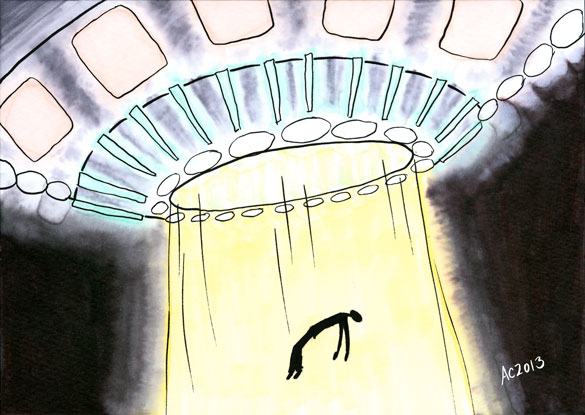This post is part of a series on Optimizing Focus. Finding it hard to focus is normal. Self-flagellation does not work to improve your focus. Furthermore it takes time and energy that takes you away from your writing; it is another distraction. I firmly believe that you can approach your work compassionately rather than violently. […]
Read More »Abducted by aliens
I’m fond of this Eisenhower quote: Plans are worthless, but planning is everything. (From a speech to the National Defense Executive Reserve Conference in Washington, D.C. (November 14, 1957) ; in Public Papers of the Presidents of the United States, Dwight D. Eisenhower, 1957, National Archives and Records Service, Government Printing Office, p. 818 ) This is […]
Read More »Communicating manuscript edits
Jo VanEvery, Academic Career Guide · Communicating manuscript edits I received a Tweet asking whether I had written anything about managing manuscript edits. I have a class available that helps with the emotional aspects of that process, and leads you through the process of making decisions (Dealing with Reviewer Comments, available in January for purchase, […]
Read More »Managing Manuscript Edits
Jo VanEvery, Academic Career Guide · Managing manuscript edits I received a Tweet asking whether I had written anything about managing manuscript edits. You need to figure out how to manage the work involved in revising the manuscript once you’ve made those decisions. And you’ll need to write a letter to the editor when you […]
Read More »Are you resisting routine?
During last Thursday’s Meeting, one participant commented that she’d noticed an interesting benefit of A Meeting With Your Writing. Like so many of us, J is prone to changing her schedule a lot. This means making decisions about whether to write now or to do some other thing on the big list of important stuff. A Meeting […]
Read More »Turn Summer Writing Plans into Autumn Writing Plans
In the post about Summer Writing Plans I suggested that you don’t necessarily want to finish things in the summer, but rather get them to the point where what remains can be done during a busy term. One of my objectives in writing that post was to help you set yourself up for writing in term time, something […]
Read More »Flexibility, autonomy, and boundaries
Jo VanEvery, Academic Career Guide · Flexibility, autonomy, boundaries One of the things you love about academic work is the flexibility and the autonomy. You don’t have to be in the office at 9 a.m. every morning. You don’t even have to be in the office every day. In theory you could take Wednesday off to […]
Read More »What are you waiting for?
Are there things you’d really love to be doing but aren’t? It could be anything: spending more time with your kids writing something different from what you’ve been writing using your research to serve the needs of some community … You are probably telling yourself some story about why you can’t do it. That story […]
Read More »Are you taking long weekends?
We all get long weekends sometimes, though for different reasons. It seems that a lot of holidays that used to float are now observed on a Monday in order to make it a long weekend. I know a lot of academics have a hard time regularly taking 2-day weekends. I’m betting long weekends are even […]
Read More »Doing what you want to do
At the beginning of every session of A Meeting With Your Writing I used to ask participants to make a list of all the writing/research projects that they consider active. I then asked them which one of those they most want to work on during the next 90 minutes. It might be the one that would be most […]
Read More »When your work doesn’t look like work
Jo VanEvery, Academic Career Guide · When your work doesn’t look like work You’re tired of the popular misconception that ‘academics get the whole summer off’. Are you letting that public perception affect how you work? Are you working indoors at your desk? Are you working during “normal working hours”? Are you avoiding the hammock? The […]
Read More »Confidence must come from within
Jo VanEvery, Academic Career Guide · Confidence must come from within It’s easy to think that external validation will help build your confidence. Getting that paper accepted. Getting that grant. Having someone more established in your field cite your work or compliment you on it. It won’t. Like Groucho Marx, who famously would not want […]
Read More »














